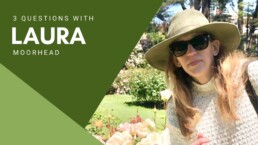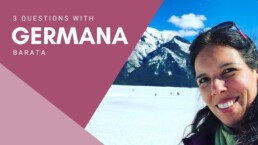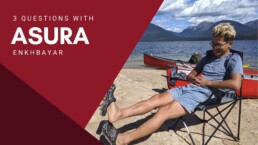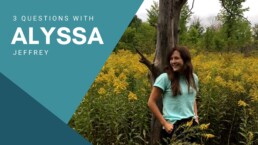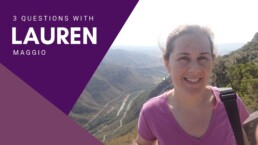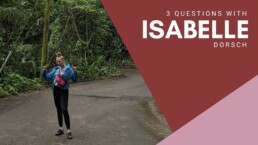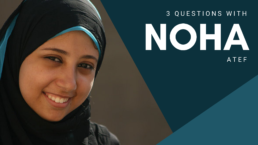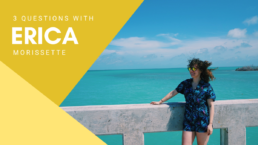Three questions with… Laura!
Our lab is growing! In our Three Questions series, we’re profiling each of our members and the amazing work they’re doing.
This week’s post features Laura Moorhead, an assistant professor in San Francisco State University’s Journalism department and a research associate with the ScholCommLab. In this interview, she discusses the joys and pains of publishing non-COVID papers in the “era of COVID,” offers a glimpse of some new research, and more.
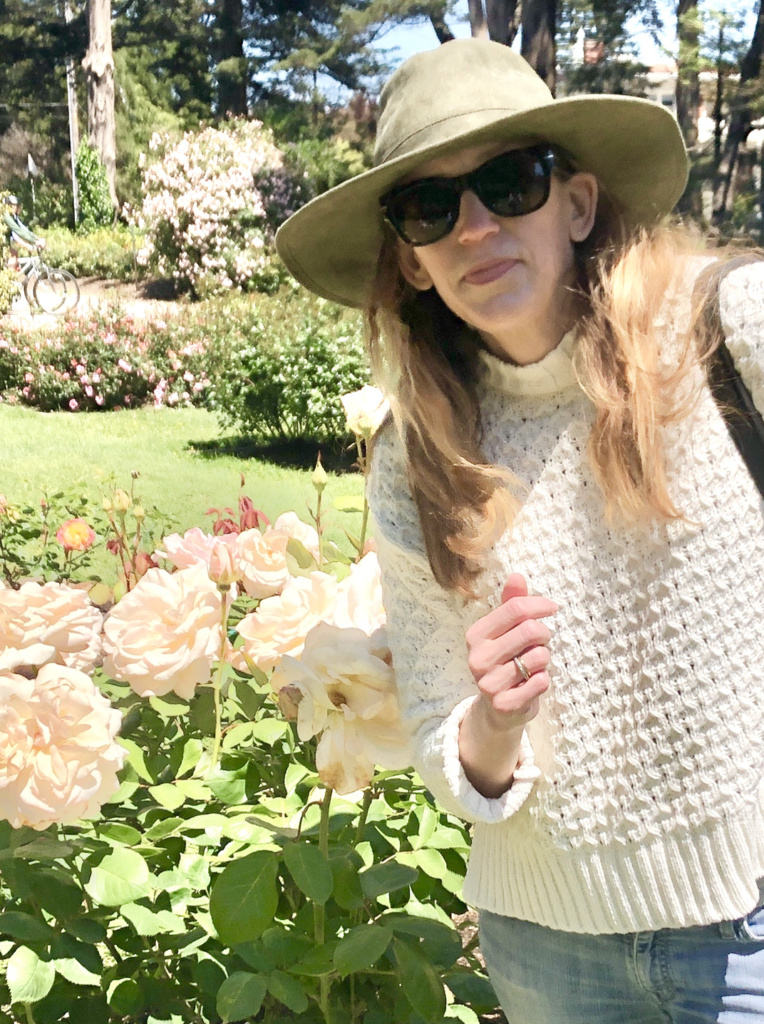
Q#1 What are you working on at the lab?
I’m helping with the health communication crew. As a former journalist, I’m interested in projects that hit the sweet spot of journalism (e.g., news) and access to knowledge (e.g., research). I’m excited about an upcoming qualitative project that considers how journalists approach the inclusion of research and how scientists view that approach. Ultimately, I’m interested in how the public benefits (or not) from shared knowledge of research. What research makes it to the public and how do people use it? We’ll also be considering how preprints are used and perceived.
Q#2 Tell us about a recent paper, presentation, or project you’re proud of.
“Proud” isn’t the right word, but “perseverance” might work. This paper was just published and the review process took FOREVER. It’s an analysis of US-funded cancer research showing that online news stories mention significantly fewer studies than do other forms of news media. Additionally, the paper highlights mismatches between relative prevalence or mortality of different cancer types and the amount of coverage they receive. It’s a follow-up paper of sorts that stems from another paper. Multiple people from the lab helped on both papers—Juan Pablo Alperin, Asura Enkhbayar, Lauren Maggio, as well as another colleague (Mindy Krakow).
But back to the perseverance: This second paper is kind of a bookend to the first paper. Thus, we went back to BMJ Open for our initial submission in November 2019. But, alas, no luck. Then in April 2020, we submitted the paper to PLOS One. There were two round of revisions, and at several points, I thought we’d never win over Reviewer #2 regarding our use of Altmetric data. Eventually, though, we did. We also hit the bad timing of submitting a non-COVID paper during the eternal era of COVID. But eventually, it all panned out. Plus side: PLOS One volunteered to write and distribute a press release about the research on our behalf, which has been a pleasant surprise.
Q#3 What’s the best (or worst) piece of advice you’ve ever received?
Why is this one so hard?
Best advice (circa 1990): Said to my 20-something self then living in NYC, the epicentre of mainstream publishing: “You’re interested in tech and culture, you should move to San Francisco.”
Worst advice, all from former bosses or mentors (circa 1993, 2007, 2015): Don’t go work or do X at Y (1993 = Wired magazine, 2007 = grad school, 2015 = San Francisco State University).
Follow Laura on Twitter at @laura_moorhead.
Three questions with... Germana!
Our lab is growing! In our Three Questions series, we’re profiling each of our members and the amazing work they’re doing.
In today’s post, we’re highlighting Germana Barata, a science communication scholar and practitioner with interests in social media, altmetrics, and science journals. A researcher at Labjor-Unicamp in Brazil, Germana is a former visiting scholar at the ScholCommLab and continues to collaborate with us to this day.
In this post, she tells us more about her work on mapping Canadian science communicators, her research into academic metrics, and the importance of collaboration and partnership—during the pandemic and beyond.
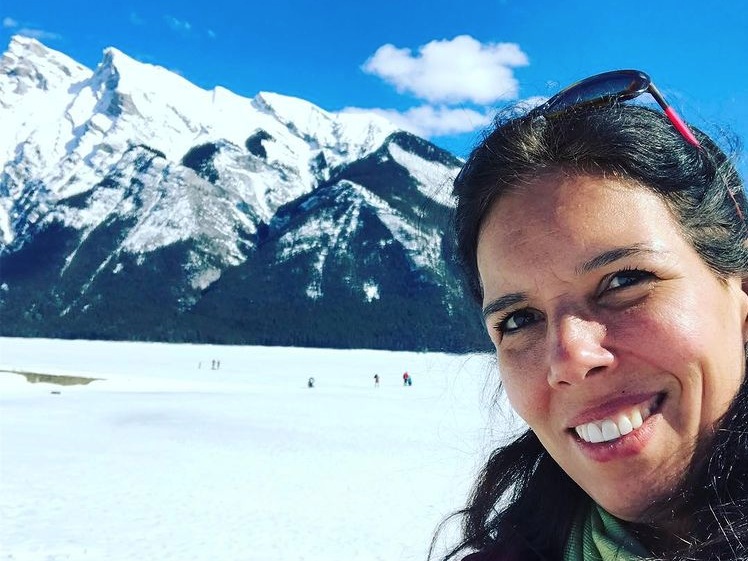
Q#1 What are you working on at the lab?
I am involved in the Metrics Literacies project, a great initiative coordinated by Stefanie Haustein to improve academics' knowledge of indicators and metrics that have been extensively used yet not so well understood. I'd love to contribute more. So far I have worked on building the profile of one the personas we are using to guide our research: Paulo Barbosa, a PhD Brazilian student whose name is a tribute to Paulo Artaxo (Brazilian top cited climate change scientist) and Márcia Barbosa (a physicist who fights for increasing women's presence at STEM).
Q#2 Tell us about a recent paper, presentation, or project you’re proud of.
Although my work as a visiting scholar at the ScholCommLab formally ended in 2018 we are still publishing some results from the research conducted during my stay. The project, Mapping the new landscape of Science Communication in Canada, was a great chance to use altmetrics methods to track science communicators geolocated in Canada. So far, we have identified 417 science communicators on Twitter and Instagram in the country. The majority are female, from either Ontario or British Columbia. Many of them are communicating science as a personal effort, frequently with no financial support. I was surprised to find out so many awesome and creative initiatives! The map we created through this project provides a great chance to give visibility to the actions of these communicators, strengthen collaboration among them, and call attention to the need to invest in science communication in times when misinformation is dangerously widespread.
Throughout this project, I worked with Michelle Riedlinger, Alexandre Schiele, and Juan Pablo Alperin, with the collaboration of the Science Writers and Communicators of Canada (SWCC) and Association des communicateurs scientifiques du Québec (AQC) and the support of the Social Science and Humanities Research Council (SSHRC). This project can only be sustainable with collaboration from all.
Q#3 What’s the best (or worst) piece of advice you’ve ever received?
A great piece of advice is a quote from John Lennon: "A dream you dream alone is only a dream. A dream you dream together is reality" (a bit tacky, I know, but it’s true). This applies to both personal and professional life. Partnership has been my favourite keyword for years, but the COVID-19 pandemic has shown even more strongly that we live in a collective world and that our actions affect all of us.
Partnership has been my favourite keyword for years, but the COVID-19 pandemic has shown even more strongly that we live in a collective world and that our actions affect all of us.
Follow Germana on Twitter at @germanabarata.
Three questions with… Michelle!
Our lab is growing! In our Three Questions series, we’re profiling each of our members and the amazing work they’re doing.
Today’s post features Michelle Riedlinger, a senior lecturer in the School of Communication at the Queensland University of Technology and a research associate at the ScholCommLab. In this interview, she shares her experiences collaborating on research across international borders in the midst of a pandemic. She also offers words of wisdom for avoiding frustrated bosses and online shopping regrets.
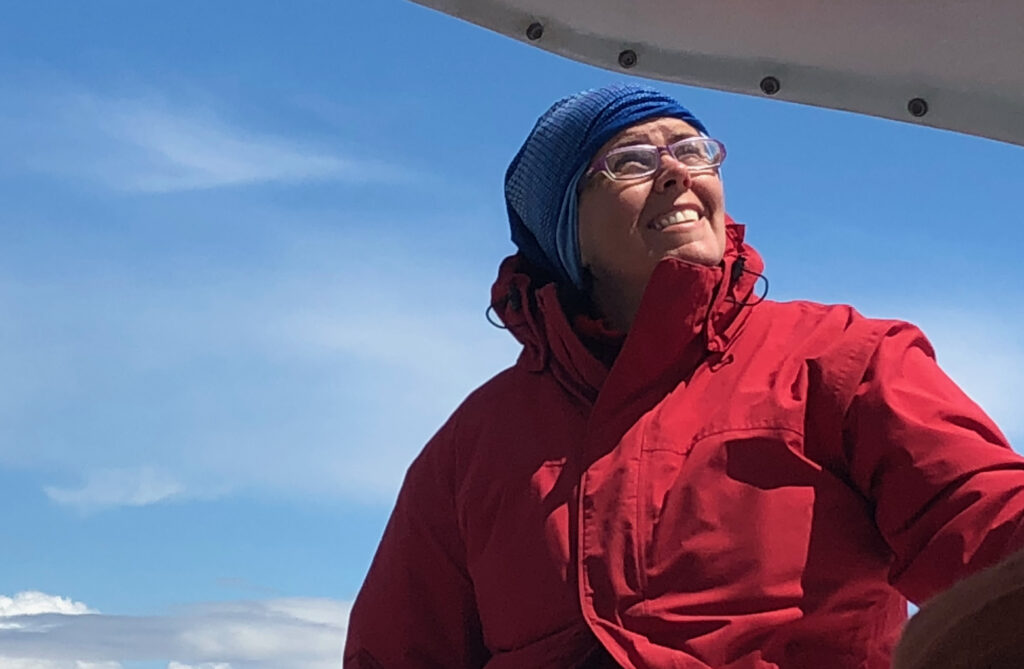
Q#1 What are you working on at the lab?
I’m working on a 3-year SSHRC-funded project, Sharing health research: The circulation of reliable health science in a changing media landscape. I’m also finishing up work on a SSHRC Partnership Engage grant-funded project, Mapping the new landscape of science communication in Canada with the Science Writers and Communicators of Canada.
Q#2 Tell us about a recent paper, presentation, or project you’re proud of.
There’s a lot of recent work that I’m proud of. I loved working with the “Sharing health research” team last year on the project that led to the paper published in Health Communication, “Communicating scientific uncertainty in an age of COVID-19: An investigation into the use of preprints by digital media outlets.” We’ve had incredible uptake from media outlets and journalists, thanks to Alice Fleerackers’s wonderful media liaison skills.
In terms of collaborations with other groups, I loved working with communication researchers from around the world on the article, “The Covid-19 mirror: Reflecting science-society relationships across 11 countries”. We had planned to meet in Italy in May 2020, but it became clear in March that it wasn’t going to happen. Instead, we met online every couple of weeks from March to May to compare our countries’ attitudes and approaches to experts and expertise during the first few months of the pandemic. This “world from a desk” research approach was good fun at a time when we all needed some fun.
Both of these articles are included in the World Health Organization’s COVID-19 Global literature on coronavirus disease repository. This is a great resource for researchers if you haven’t come across it before.
Q#3 What’s the best (or worst) piece of advice you’ve ever received?
The most recent piece of good advice I’ve received is, “Never buy anything online when you are lying on the couch.” I’ve ignored this advice to my detriment (e.g. What is that case of wine doing at the front door?).
But the best piece of advice I have received? On my first day in a new job in my 20s, my boss said to me, “Don’t come to me with problems, come with solutions. I’m too busy for problems.” I was horrified at the time, but it’s actually great advice.
Ask for help if you need it but work out what you need rather than plonking a problem on someone else.
Find Michelle on Twitter at @riedlinm.
Three questions with… Asura!
Our lab is growing! In our Three Questions series, we’re profiling each of our members and the amazing work they’re doing.
Today’s post features Asura Enkhbayar, a PhD student and data scientist at the ScholCommLab. In this post, he tells us about his work at the intersection of bibliometrics, social media research, and philosophy, shares what it’s like to bridge theory and practice, and offers words of advice for staying sane in academia.
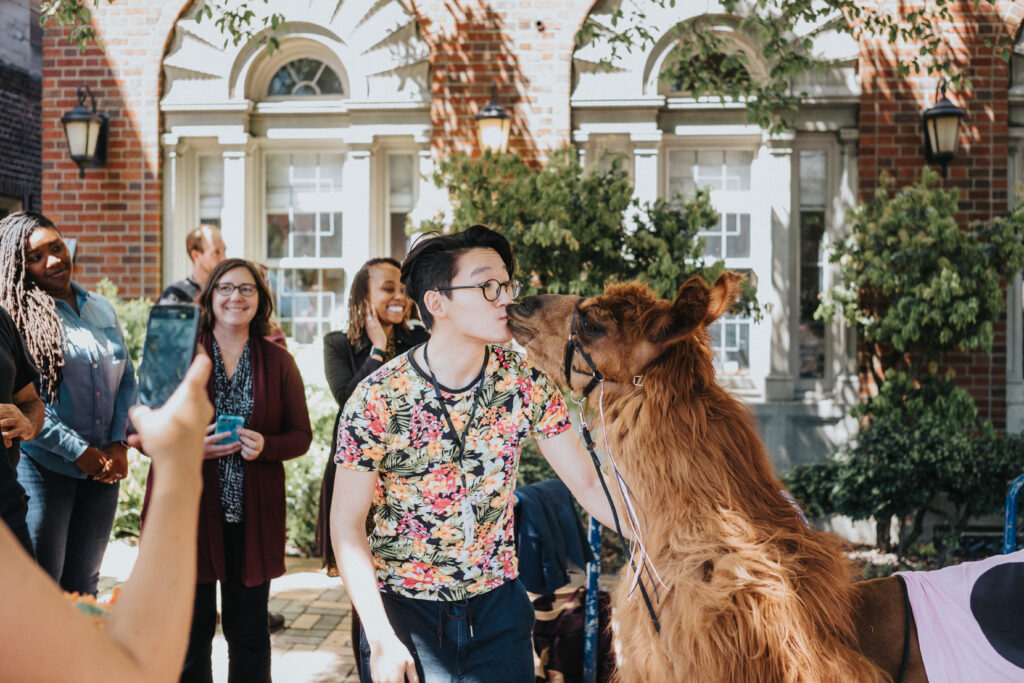
Q#1 What are you working on at the lab?
I wear two official hats in the lab. Firstly, as a PhD student I work on critical approaches to citations and scholarly metrics, which sometimes translates into me working on the theoretic and conceptual dimensions of issues explored in the lab. In more concrete terms, this means that you will find me in the fun space between bibliometrics, social media research, and philosophy. Secondly, you will see me as the lab data scientist helping out in various projects in the lab. Finally, I also claim the unofficial lab-shitposter hat on Twitter.
Q#2 Tell us about a recent paper, presentation, or project you’re proud of.
Metrics in Context is a project that grew out of theoretical aspects of my doctoral research and has recently become a great example for the kind of work that I aspire to do. In it, I revisit common conceptualization of scholarly metrics in order to develop an analytic framework to describe various data sources for metrics. While the project is still in its early stages, I have recently had the chance to present an overview in a lightning talk at FOSDEM. I am currently working on a prototype implementation and have started conversations to test it with real world data. It is exhilarating and also rewarding to play close to the schism between theory and practice in science. Who knows how big of a gap it will actually turn out to be in the end?
Q#3 What’s the best (or worst) piece of advice you’ve ever received?
I’ve come across this piece of advice in many places and expressed in many different ways. Ranty Reddit threads, dank grad school meme pages, individuals on Twitter sharing their experiences, from the perspective of mental health professionals or even critical theory. I am very grateful that all these communities and individuals again and again remind me of this fact:
Grad school (or academia generally) is not a part of your identity. Your curiosity, love for critical thinking, or desire to improve the world might be part of your personality, but the formal systems of higher education and research are not. Your family and friends, your hobbies, the music and food you love, and your life on weekends are part of your identity and will remain with you for the rest of your life. The grade you got for that essay, that one deadline you suffered for, the number of citations you accumulated, or your academic CV are not part of your identity. Especially, as any representative of a minority group, the whole system is neither designed by nor made for people like you. I like to remember all these things whenever I am struggling, feeling depressed, or questioning the path I am on.
Your curiosity, love for critical thinking, or desire to improve the world might be part of your personality, but the formal systems of higher education and research are not... I like to remember all these things whenever I am struggling, feeling depressed, or questioning the path I am on.
So, do the kind of research that gives you joy (Marie Kondo your research?), join your union, and go to that party and dance your ass off (after Covid of course…).
Find Asura on Twitter at @bubblbu_.
Three questions with... Alyssa!
Our lab is growing! In our Three Questions series, we’re profiling each of our members and the amazing work they’re doing.
Today, we’re highlighting Alyssa Jeffrey, a first year master’s student in the School of Information Studies at the University of Ottawa and a research assistant at the ScholCommLab. In this interview, she shares her experiences creating open educational resources (OERs), navigating teamwork in the midst of the pandemic, and more.
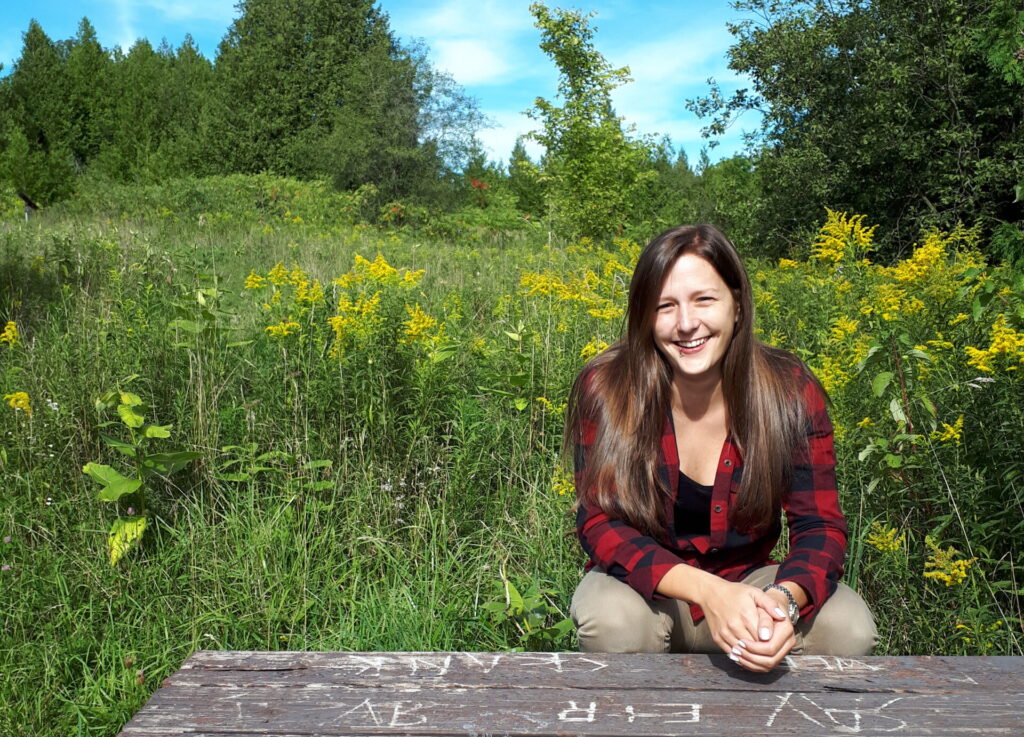
Q#1 What are you working on at the lab?
At the lab I am a research assistant for Stefanie Haustein and am working with her and others on her Metrics Literacies project. In this project we are looking at the benefits of multimedia educational resources in education. We will be creating multimedia OERs on the topic of the h-index to experimentally test and then disseminate across the academic community, with the hope of allowing researchers and research managers to build ‘metrics literacies.’ We have presented the work in progress research at conferences and talks over the past year and are crossing our fingers for receiving funding this spring to continue on with the project!
Q#2 Tell us about a recent paper, presentation, or project you’re proud of.
A project that I’m proud of—and that was also fun to do—is a group project from last year that we had to complete during the beginning weeks of the first lockdown in March 2020. The project was to present an idea to the Canadian Museum of History that would better their online artifact catalogue. Our team came up with what I think is a very creative solution by presenting Canada’s history geographically using maps as a platform to guide the user’s research. I’m proud of our solution to the project, but also proud of our team for having truly enjoyed the project and working together well, even at the beginning of the pandemic!
More recently, I’m proud to have presented work from the Metrics Literacies project at the Ontario Library Association (OLA) Super Conference. I’m definitely interested in pursuing a career in librarianship and so attending the conference was wonderful. Being able to present our project there was an amazing opportunity and I’m grateful that I was able to do it.
Q#3 What’s the best (or worst) piece of advice you’ve ever received?
I’m sure I’ve received many amazing—and not so amazing—pieces of advice over the years. But one piece has become important to things I’ve been doing recently, and I think it can apply to many areas of professional and personal life. The advice is that word of mouth is the best form of advertising. Now, I know that may sound boring, but it has always stuck with me. I honestly think it can apply to so many more situations than simply advertising. To me, more broadly, this advice seems to underline the power that lies in verbal communication between people. Power lies in people telling their stories, in people discussing things in their lives with their friends, family, and peers. And it lies in those people, in turn, passing the stories along to the people they know.
Power lies in people telling their stories, in people discussing things in their lives with their friends, family, and peers.
I think now in this very separated, online world that we’re living and working in, this advice can be beneficial for remembering how important it is to continue to make connections with others as best as possible, and to continue to tell people your stories and to listen to theirs.
Three questions with... Lauren!
Our lab is growing! In our Three Questions series, we’re profiling each of our members and the amazing work they’re doing.
Today, we’re highlighting Lauren Maggio, a professor of medicine and associate director of scholarly communication at the Uniformed Services University of the Health Sciences. In this post, she tells us more about the work she’s doing as a research associate at the ScholCommLab, and offers wise words for maintaining a manageable yet fulfilling academic career.
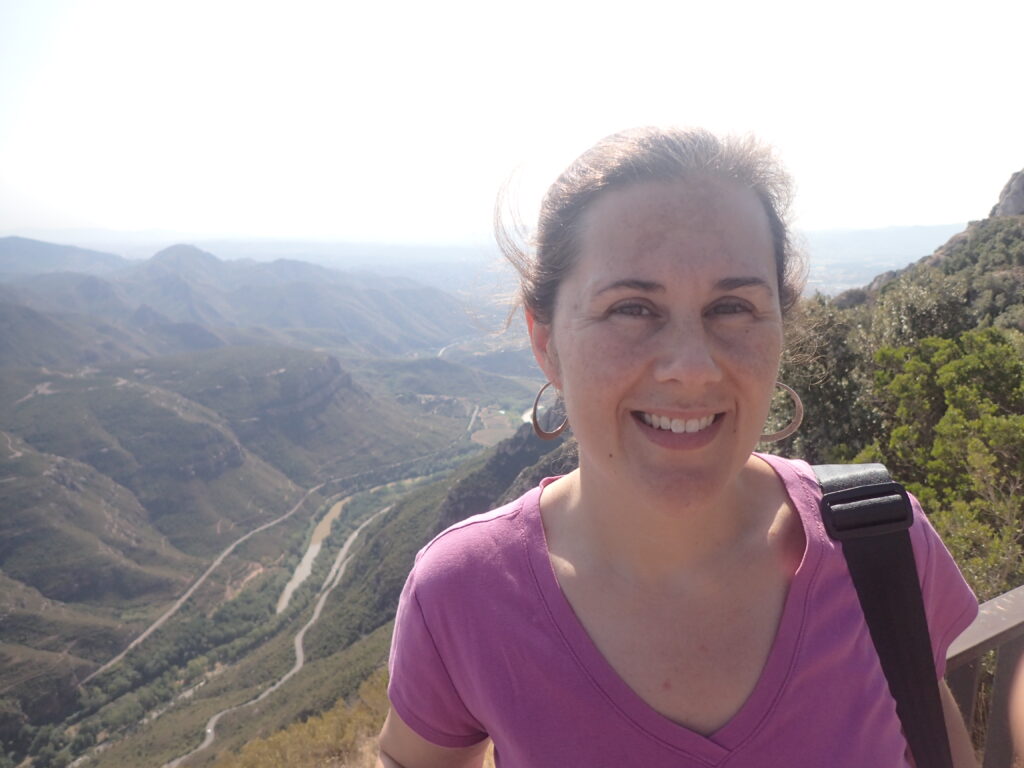
Q#1 What are you working on at the lab?
I'm excited to be collaborating with the lab on two different projects. I am working with Juan Pablo Alperin and a team of journalists, health communicators, and computer and information scientists to explore the sharing of health research in the changing media landscape (for example, the use of preprints and the dissemination of science via social media). I am also collaborating with Stefanie Haustein on the Metrics Literacies project. We hope to improve the understanding and appropriate use of scholarly metrics in academia, specifically the H-Index.
Q#2 Tell us about a recent paper, presentation, or project you’re proud of.
I've recently been studying the responsible conduct of research—especially responsible authorship—using surveys and qualitative interviews. I'm proud of this work because it has enabled me to give voice to researchers who feel that they have suffered in the authorship process, for example, by being forced to add authors undeserving of authorship to a paper or being left off articles that they contributed to.) The results have inspired me to advocate for a broader conversation on this important topic.
I'm proud of this work because it has enabled me to give voice to researchers who feel that they have suffered in the authorship process... The results have inspired me to advocate for a broader conversation on this important topic.
Lauren Maggio
Q#3 What’s the best (or worst) piece of advice you’ve ever received?
Early in my career, my mentor encouraged me to retain at least a little bandwidth at all times to ensure that I would always have the flexibility to say yes to a project that truly excites me. While this has meant sometimes saying no to opportunities, it has helped me avoid the disappointment of turning down those that really matter to me.
Find Lauren on Twitter at @LaurenMaggio
Three questions with… Isabelle!
Our lab is growing! In our Three Questions series, we’re profiling each of our members and the amazing work they’re doing.
Today’s post features ScholCommLab visiting scholar Isabelle Dorsch, a newly minted graduate from the PhD program at Heinrich Heine University’s Department of Information Science (Düsseldorf, Germany). In this interview, she tells us more about her work on scholarly metrics, the benefits of using illustration in research projects, and the unexpected pleasures of applesauce for dinner.
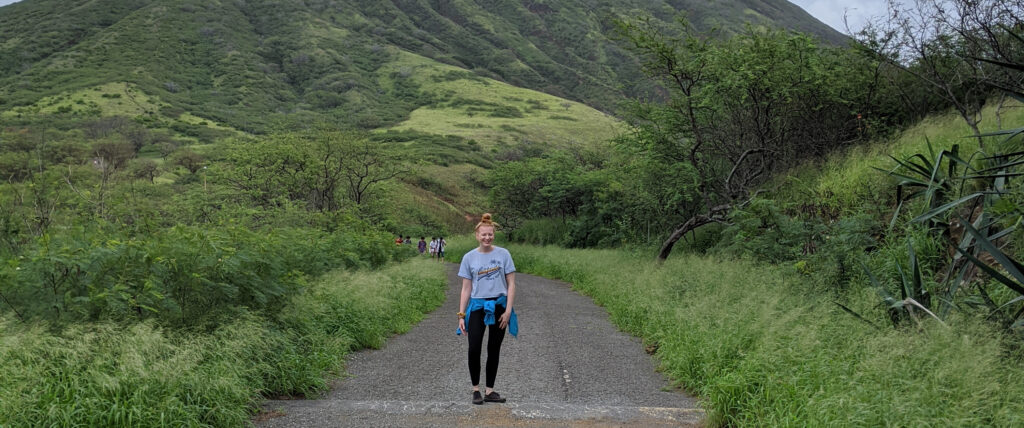
Q#1 What are you working on at the lab?
Hi there, Isabelle here. I’m working with Stefanie Haustein’s Metrics Literacies team. The aim of the project is the creation and evaluation of multimedia open educational resources (OERs) on scholarly metrics.
For the first stage of the project, we are focusing on the h-index. For example, we are creating an h-index briefing note that contains useful information about how the index is calculated, as well as how it is commonly used and misused. It’ll be used as a basis for making other OERs. To make the materials relatable, we’ll work with five researcher personas, each with a unique story and their very own experiences with scholarly metrics like the h-index.
Q#2 Tell us about a recent paper, presentation, or project you’re proud of.
Of course, I’m proud of the persona creation we did with our team. As an illustrator as well as a researcher on the project, I was also responsible for giving them their faces. However, as we only released our first official version in October, we are still seeking feedback. So feel free to check them out on Zenodo and let us know what you think.
Besides, as the first person in my family to do so, I am proud to have obtained my PhD in December 2020.
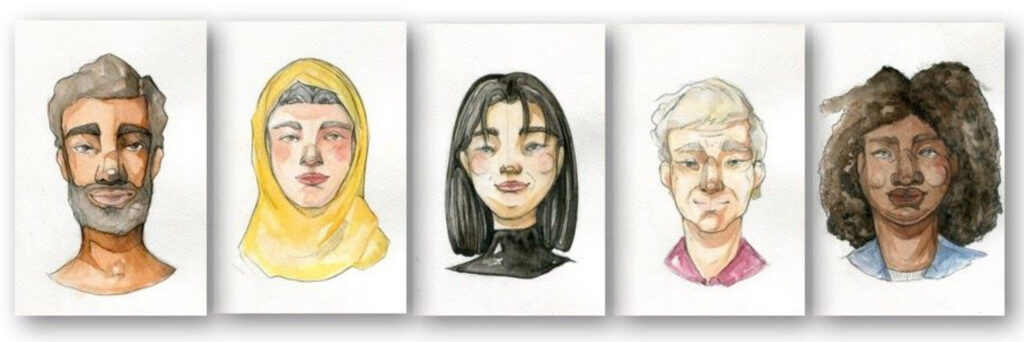
Q#3 What’s the best (or worst) piece of advice you’ve ever received?
Puh! This is a tough question. As an early-career researcher in academia: Try out as many things as you want.
On a more personal level: A very good piece of advice is to combine tomato pasta dishes or vegan spaghetti bolognese with apple sauce on top. Believe me, it might sound questionable, but it tastes so good. The same applies to salty/sweet combinations like a strawberry milkshake and French fries or ice cream and French fries.
Find out more about Isabelle at her ResearchGate page or Twitter profile (@bezwitschernd).
Three questions with... Noha!
Our lab is growing! In our Three Questions series, we’re profiling each of our members and the amazing work they’re doing.
Today, we’re highlighting Noha Atef, a postdoctoral media researcher at the ScholCommLab working at the intersection of social media, citizen media, journalism, and health communication. In this post, she tells us more about her work in the lab, her research on misinformation in the Arab region, and the perils of online health “advice.”
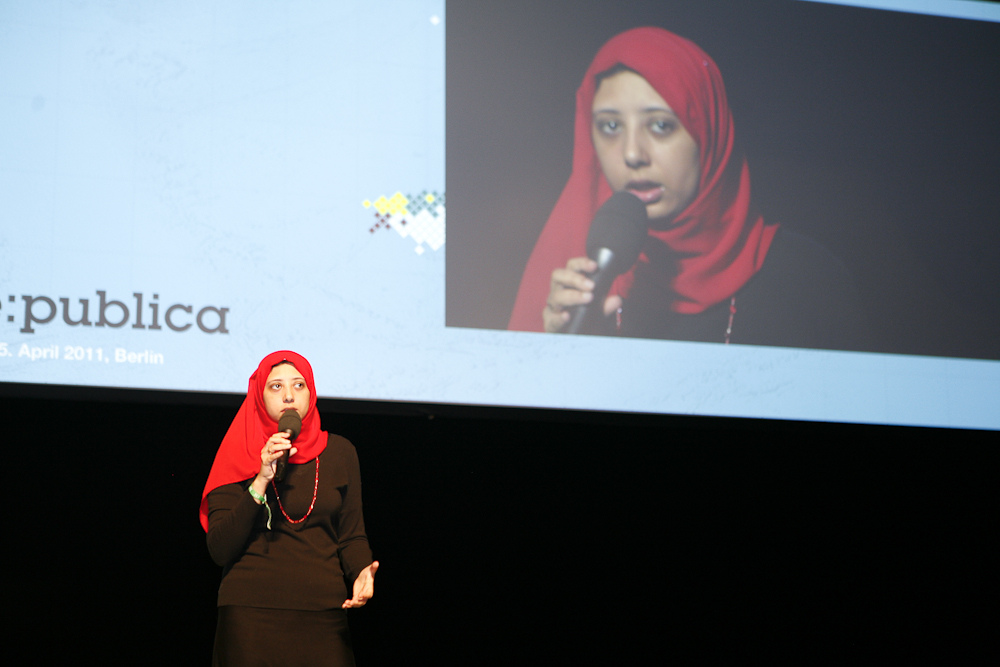
Q#1 What are you working on at the lab?
I am conducting a research project called Doctors Who Blog about doctors who are using social media to make and share content about their specializations. This work is part of the broader Health and Science Communication project in the lab.
Q#2 Tell us about a recent paper, presentation, or project you’re proud of.
A piece I cherish is our recent recommendation paper about combating misinformation and disinformation in Arab media. I worked on it with a team of researchers and journalists in the middle of a COVID-19 lockdown, collaborating across three cities. I am proud of this paper not only because it was the first of its kind and we were able to complete it despite many challenging circumstances, but also because it involved direct communication with journalists, academics, representatives of media organizations, and representatives of technology corporations. Plus, there was a lot of communication with journalists and media students through a Facebook group, where they gave examples and case studies. Overall, working on this paper made the lockdown feel productive and led to a valuable output.
Q#3 What’s the best (or worst) piece of advice you’ve ever received?
The best piece of advice was given to me by my father. It was not to measure my self-worth by my grades or any achievements, not to try to validate myself through actions or material things. I have never done that anyway, but as a sensitive child, I didn’t take comparison to others very well. Some parents, teachers, and caregivers I knew would compare children to their peers to inspire them to improve, but for me this always backfired.
"The worst piece of advice? Any advice that promises unbelievable changes if you stop doing something you enjoy."
Noha Atef
And the worst piece of advice? Any advice that promises unbelievable changes if you stop doing something you enjoy, which I see a lot of nowadays on social media. For example: “Stop drinking coffee and see what happens to your body,” “30 days of no sugar and magic will happen,” or “Ditch bread and see what you gain.” I think this kind of advice is terrible because it promises a fallacious dream that you will become “well’ or “beautiful” just by following the tip, which is very likely going to lead to disappointment. Plus, it does not raise awareness or educate people, encouraging them to focus on magical results instead of learning about how coffee, sugar, or bread affect the body. In fact, this type of advice is what got me interested in health communication in the first place, as I sat at my computer with a coffee with brown sugar in one hand and a buttered toast in the other!
Find out more about Noha at her website, or follow her on Twitter at @NohaAtef.
Three questions with… Rémi!
Our lab is growing! In our Three Questions series, we’re profiling each of our members and the amazing work they’re doing.
Today’s post features ScholCommLab member Rémi Toupin, a PhD candidate studying the contexts of climate change research communication on Twitter at the Université du Québec à Montréal (UQAM). In this interview, he tells us about his doctoral work, his recent foray into science communication, and the surprising joys of winter cycling.
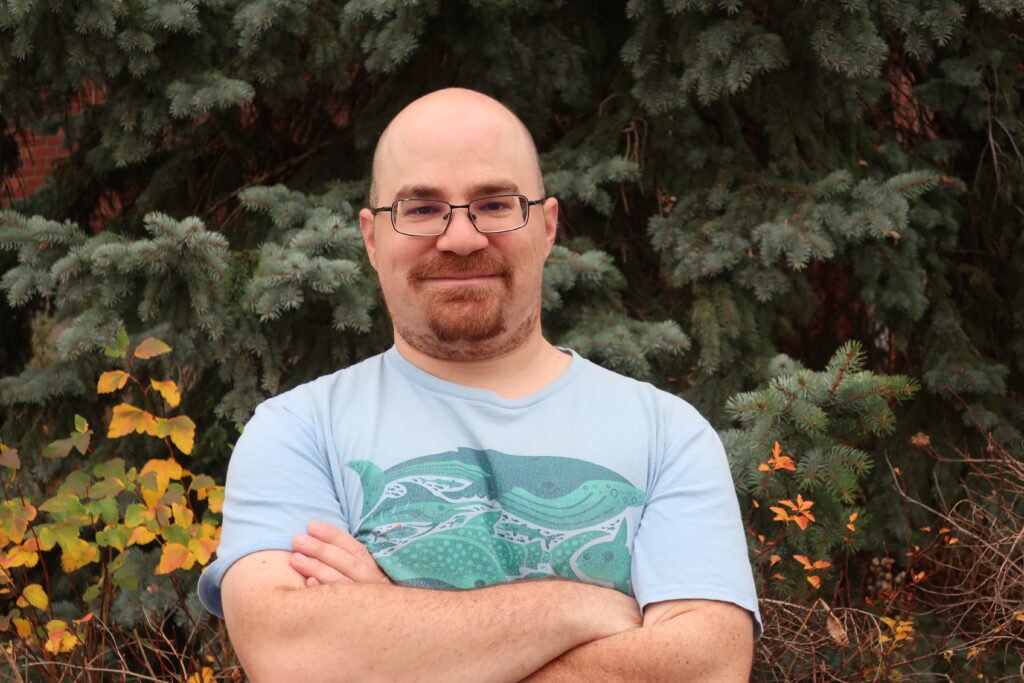
Q#1 What are you working on at the lab?
I got involved in the Altmetrics and Societal Impact project through my doctoral research, which uses a mixed method approach to understand the contexts of climate change research communication on Twitter. I hope that getting to know who tweets climate change research as well as the relationships between them will shed light about some of the specific ways scholarly documents permeate outside of academia. It could also help us build comprehensive tools to assess the societal resonance of research.
Q#2 Tell us about a recent paper, presentation, or project you’re proud of.
It just launched! Starting last summer, I got involved in Le numérique en questions, a science communication project started by the UQAM Research Chair on the Uses of Digital Technologies and Communication Changes to share knowledge about digital practices. Although the project is exclusively in French for now, further developments will focus on adapting our content to other communities as well as engaging with new formats. As for me, I’ll produce new content—blog posts and infographics—about exciting topics such as digital security and the ecological footprint of the internet!
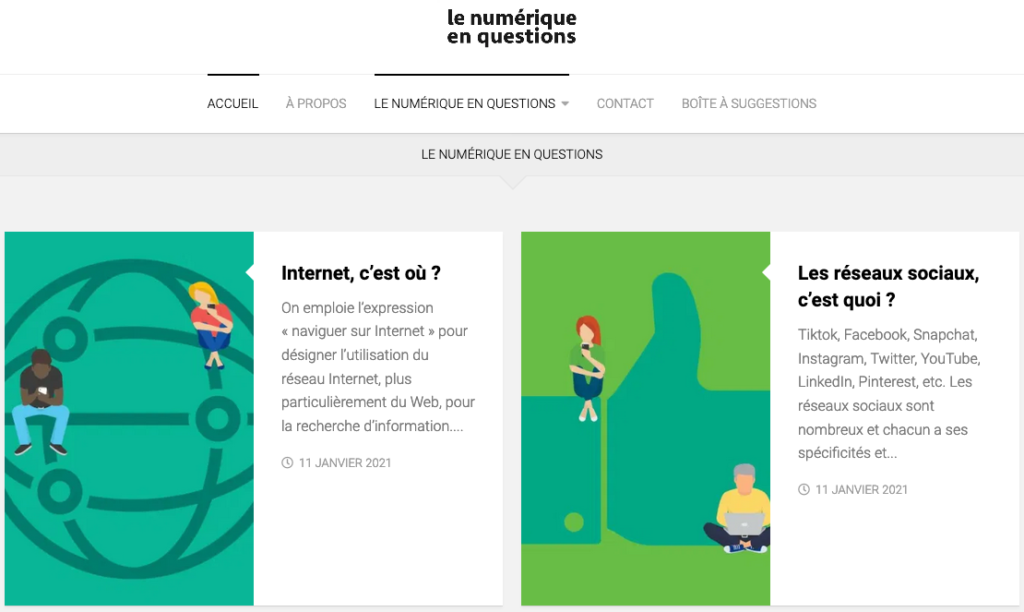
Q#3 What’s the best (or worst) piece of advice you’ve ever received?
I have received a lot of really good advice over the years, but one that stands out was a friend motivating me to use my bike for everything from commuting to long distance travel. Since then, I hop on my bike whenever I get the chance—even in the snow—and cycling and enjoying the outdoors really boosts my energy levels!
On the other hand, a frustrating piece of advice I received was from a professor who told us to never drink red wine during academic happy hours, the reason being that if you spill it on someone else’s expensive shirt they will have a bad lasting impression of you. So much for helping students feel empowered!
Find Rémi on Twitter at @RemiToup.
Three questions with …. Erica!
Our lab is growing! In our Three Questions series, we’re profiling each of our members and the amazing work they’re doing.
Today, we’re highlighting Erica Morissette, a master’s student in Information Studies at the University of Ottawa, a researcher at the ScholCommLab, and a self declared “nature nerd.”
In this post, she tells us about her work on open data and the academic reward system, and explains how terrible advice can sometimes be life-changing.
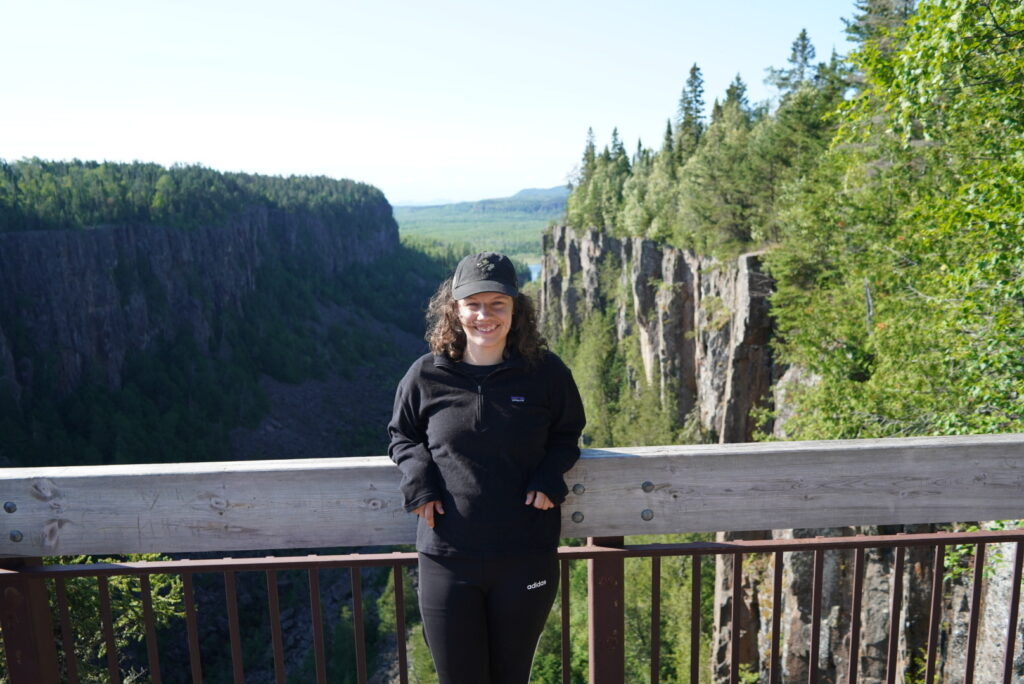
Q#1 What are you working on at the lab?
At the lab I’m mostly working on my master’s thesis and spending some time learning from all the different folks through meetings and a few one-on-one discussions. My supervisor is Stefanie Haustein. She brought me into this network, for which I’m super grateful!
While I’ve bounced around trying to find the right topic for my thesis, I’ve settled on trying to classify datasets in Dryad by scholarly discipline. Dryad is a neat open-access repository for research data that works internationally and aims to keep data findable and easy to access. The ability to leverage existing metadata to classify these datasets by discipline will hopefully help researchers find what they need more efficiently, and show what disciplines are producing what data and how much of it. I’m just at the beginning of my thesis journey and this will develop, so stay tuned!
Q#2 Tell us about a recent paper, presentation, or project you’re proud of.
I am quite proud of my very first conference presentation, which took place at the Open Access Scholarly Publishing Association (OASPA) conference in September, 2020. I spoke on research data and the academic reward system, and had a great time! My poster can be found here.
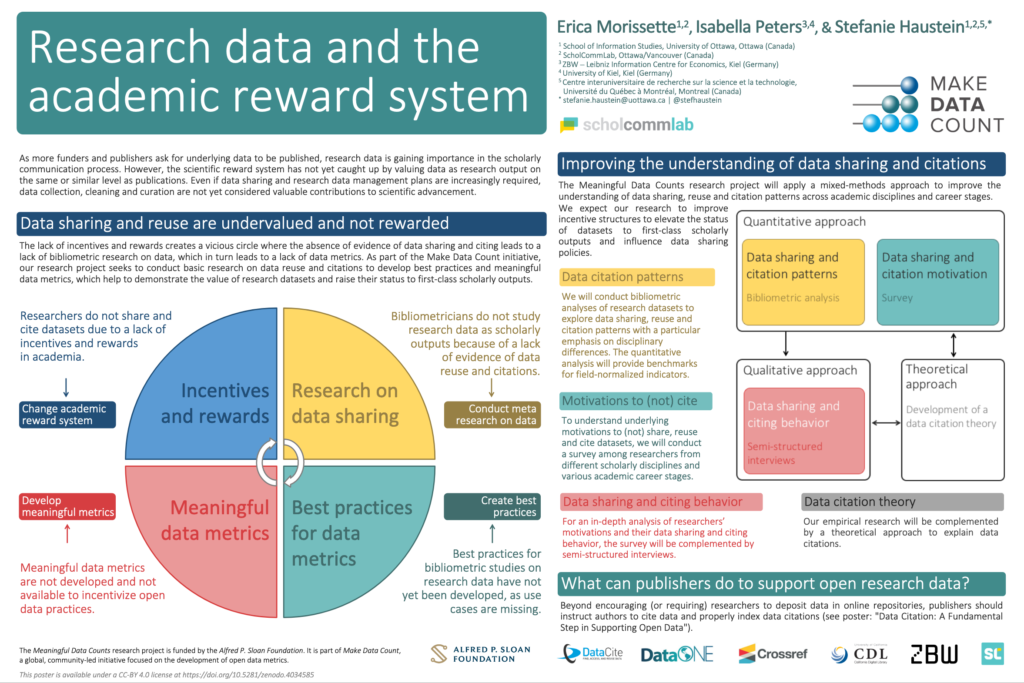
Q#3 What’s the best (or worst) piece of advice you’ve ever received?
The single best and worst advice I have ever received about my academic career was: “You only need to pass, not do well.”
I’ll explain. On one side, this is horrible advice. Aiming to simply pass and get through, for some, can result in a total lack of effort. When I first heard this advice, I had just started my undergrad as a fresh-faced teenager and thought it to be the most ridiculous thing a friend would ever say to me. I wanted to do well, I wanted to impress my professors, and I most certainly wanted my money’s worth!
As the years of studying went on, however, I began to tie my personal value into my grades. I started to believe that if I did not achieve high grades, then I must not be smart enough, good enough, or even belong at university. What I eventually learned as I grew up and continued my academics was that the grades don’t make the person. Yes, it can be important to do well if you plan on continuing your education, but it is certainly not necessary to equate grades to self worth. I saw that you actually don’t need to do well to be a good, smart person. Once I accepted this (and it took years—it sometimes still comes around to haunt me), I was able to fully enjoy my academics and classes. A surprise bonus was that I also started becoming more engaged and received better grades.
"It is certainly not necessary to equate grades to self worth... you actually don’t need to do well to be a good, smart person."
Erica Morissette
The takeaway from this is in how you read the advice. You could read it as “Do only what you must to pass,” or you could read it more along the lines of "Pass, but don’t hurt yourself doing it.”
Find Erica on Twitter at @beesearching.
